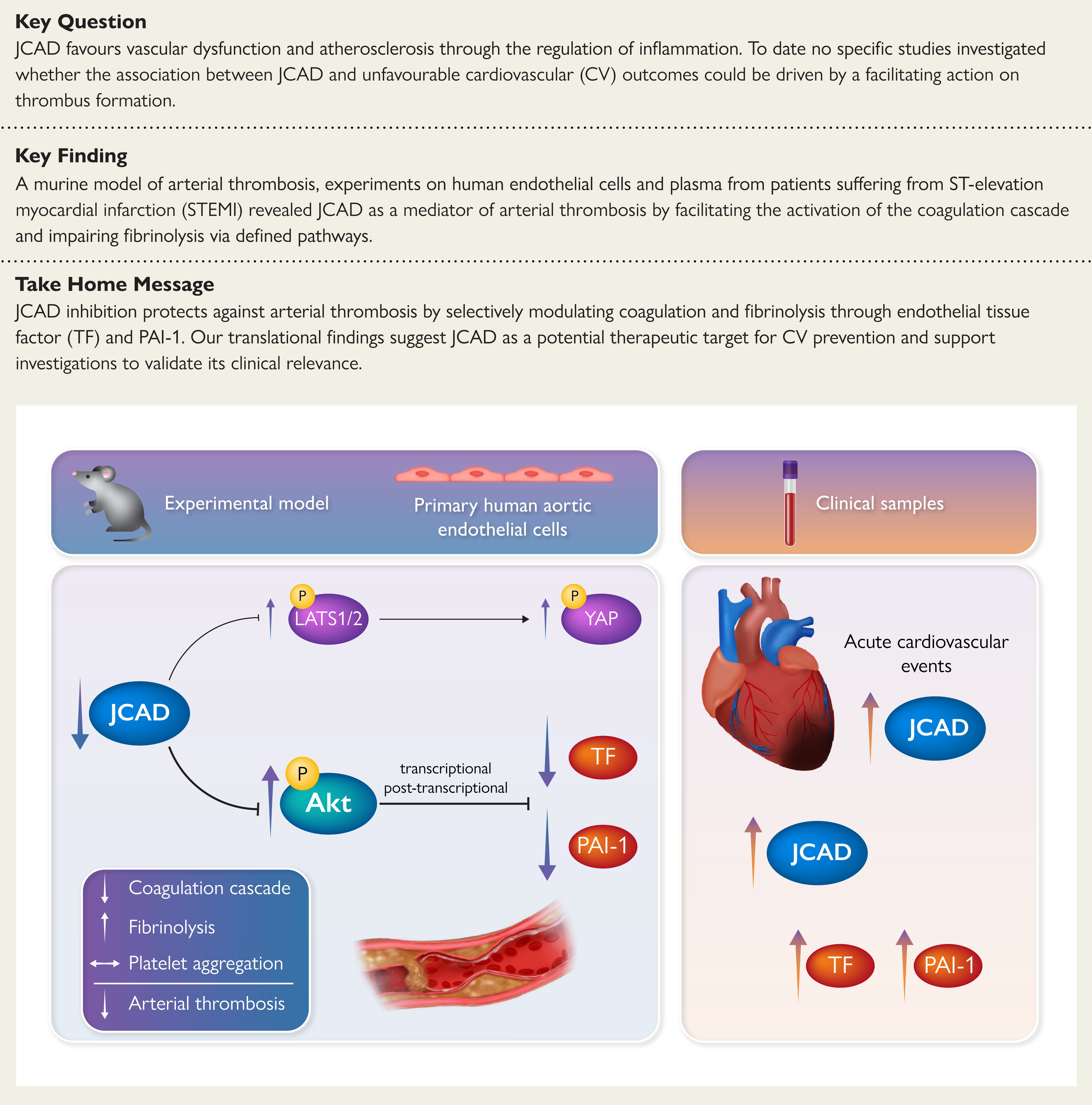The molecular mechanism underlying a novel gene-trait linkage has been discovered: JCAD and acute coronary syndromes

Genome-wide association studies linked variants in the junctional cadherin 5 associated (JCAD) locus to acute coronary syndromes (ACS), but its mechanism of action remained poorly understood. In this orgininal article, Liberale et al. aimed to study the role of JCAD on arterial thrombus formation, the major cause of ACS. Notably, by harnessing an established murine model of arterial thrombosis, human aortic endothelial cells and plasma from patients with ST-elevation myocardial infarction, the authors identified JCAD as a mediator of arterial thrombosis by facilitating the activation of the coagulation cascade and impairing fibrinolysis via defined pathways. In aggregate, this translational study suggests that JCAD inhibition protects against arterial thrombosis by selectively modulating coagulation and fibrinolysis through endothelial tissue factor and PAI-1. These results may open novel therapeutic avenues in patients with ACS.